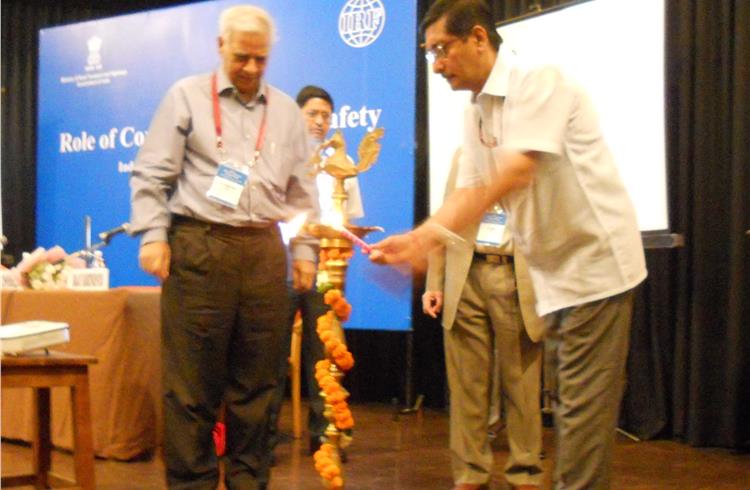NCERT to introduce road safety in school curriculum
In what can be seen as a major initiative towards driving road safety awareness in the country, the National Council of Educational Research and Training (NCERT) plans to add road safety in the school curriculum across India in the next academic session.
In what can be seen as a major initiative towards driving road safety awareness in the country, the National Council of Educational Research and Training (NCERT) plans to add road safety in the school curriculum across India in the next academic session.
Vijay Chibber, secretary, Ministry of Road Transport & Highways (MoRTH) made this observation while speaking at a seminar on ‘Role of Corporates in Road Safety’, organised by the International Road Federation (IRF), in New Delhi recently.
He added that a car crash test facility is to be set up by the end of the current financial year. India has the highest incidence of fatal road accidents in the world and accounts for 10 percent of the total 1.3 million road accident fatalities worldwide despite having only one percent of the world's vehicle population. About 138,000 people were killed in around 490,000 road accidents in India in 2012. Estimates of the Planning Commission and the World Bank put the social cost of accidents between 2 to 3 percent of the GDP every year. The country loses over Rs 100,000 crore a year due to road accidents and this is besides the loss of human life and trauma.
India is a signatory to the United Nation’s Decade of Action plan for road safety across the world which aims to reduce road fatalities by 50 percent by the year 2020. The Indian government has since realised the gravity of this problem and has taken some meaningful initiatives in the recent past. Measures towards improving road safety include the much-awaited amendment in the Motor Vehicle Act (MVA), improvements in roads from the engineering perspective, road safety audits at all stages of road construction beginning from the planning stage, besides identification and remedy of black spots which account for almost 90 percent of road fatalities in India.
The government has also set a five-year target for reversing the accident growth rate to negative. The measures to check fatal road accidents include improving road engineering, adding public transport with inbuilt safety features, providing separate cycle lanes to the extent possible, construction of bylanes on highways after every 50km with proper signage, provisions for resting areas, eating joints, fuel stations and basic facilities, restrooms and communication facilities, thus improving the public transport system, according to Chibber.
IRF has also suggested road safety audits on state road networks by the state government. Globally, road safety audits are conducted to reduce road accidents. The audit includes recognising and improving faulty road design, which is a major cause of road accidents. IRF can help in training road safety auditors as it has already trained more than 250 road auditors till date in the country, said K K Kapila, chairman, IRF.
Photograph: Vijay Chibber, secretary, Ministry of Road Transport & Highways (MoRTH), inaugurating the IRF meet.
RELATED ARTICLES
Bosch hydrogen engine tech-powered truck to be on Indian roads this year
The global supplier of technology and services is betting big on both electromobility and hydrogen. While announcing the...
IIT Bombay inaugurates Arun Firodia Research Floor
IIT Bombay, one of India’s top technical and research institutions, honours Kinetic Group chairman Dr Arun Firodia, one ...
Maruti Suzuki expands capacity at Manesar plant by additional 100,000 units
New assembly line at Plant A expands total manufacturing capacity at the Manesar plants to 900,000 units per annum. Alon...





 16 May 2014
16 May 2014
 4613 Views
4613 Views





 Autocar Pro News Desk
Autocar Pro News Desk




